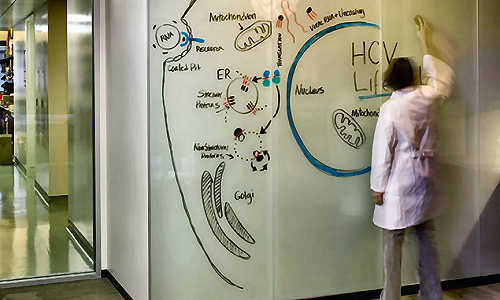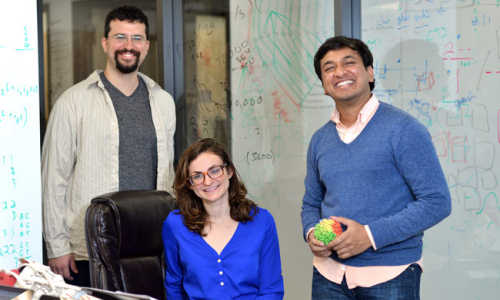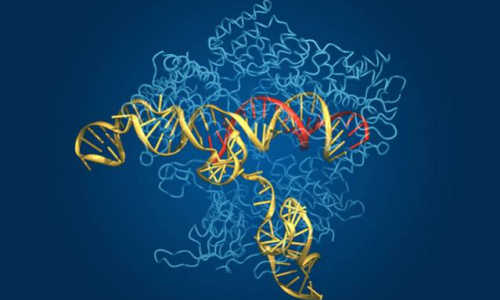One of the most exciting scientific advances made in recent years is CRISPR—the ability to precisely edit the genome of cells. However, although this method has incredible potential, the process is extremely inefficient. Fortunately, scientists at the Gladstone Institutes have discovered a way to enhance the efficiency of CRISPR with the introduction of a few key chemical compounds.
“Currently, there is a trade-off with CRISPR: the technology is very precise, but it is also quite inefficient,” says first author Chen Yu, a postdoctoral fellow at the Gladstone Institutes. “We improved this by introducing small molecules that are able to maintain the precision of the technology while boosting its efficiency.”
In CRISPR, a protein is delivered into the cell that cuts the genome at an exact specified location. The cell’s DNA can then either fuse back together after the faulty gene is removed, or scientists can insert a new gene in the old one’s place, substituting bad DNA for good.
Published in the journal Cell Stem Cell, the researchers, in collaboration with co-senior author Lei Stanley Qi, PhD, at Stanford University, successfully identified two small molecules that significantly improve the insertion of new genetic information into a cell’s DNA. During their search, the scientists also discovered two compounds that inhibit insertion but enhance deletion of DNA, suggesting the two processes are competitive actions in the cell.
Notably, the researchers were able to accomplish this genome manipulation in several different cell lines, including induced pluripotent stem cells and tissue-specific cells. This is particularly important as it indicates the method can be used in a variety of cell types to create disease models and contribute to the discovery of new disease-specific therapeutics.
Senior author Sheng Ding, PhD, a senior investigator at Gladstone, says that the potential of this discovery extends beyond improving the efficiency of CRISPR. “This study is the first to show that we can successfully manipulate genome engineering using small molecules. This gives us greater capability, enabling us to tune the machinery and also turn it on or off with chemicals, which has important implications for regulating the genome editing process.”
Story Source:
The above story is based on materials provided by Gladstone Institutes.





